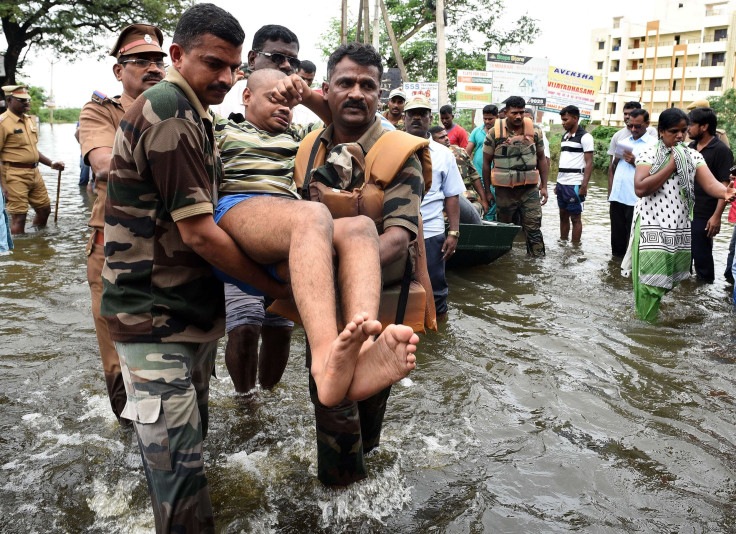Natural Disasters Linked To Over 600,000 Deaths In 20 Years: Study

Over the past two decades, natural disasters -- including floods, storms, heatwaves, droughts and other weather-related events -- have killed more than 600,000 people worldwide and caused significantly more than the $1.9 trillion in total economic losses previously recorded, a report from the United Nations Office for Disaster Risk Reduction revealed Monday. The report also warned that the frequency and impact of such events is expected to accelerate.
The five countries hit by the highest number of disasters, according to the report, were the United States with 472, China with 441, India with 288, the Philippines with 274 and Indonesia with 163. In addition to the 606,000 lives lost to natural disasters since 1995, 4.1 billion people have been injured, left homeless or in need of emergency assistance as a result of weather-related disasters.
The U.N. office recorded an average of 335 weather-related disasters every year between 2005 and 2014. That was a 14 percent increase from 1995-2004, and nearly double the level recorded between 1985 and 1995. Floods accounted for 47 percent of all weather-related disasters, while storms were the deadliest, accounting for 242,000 deaths -- with 89 percent of those deaths occurring in lower-income countries. Droughts, largely in Africa, affected over a billion people and led to hunger, malnutrition, disease and widespread agricultural failure that resulted in long-lasting underdevelopment, according to the report. Heat waves also killed 148,000 people, mostly in Europe.

“Weather and climate are major drivers of disaster risk and this report demonstrates that the world is paying a high price in lives lost,” wrote Margareta Wahlström, head of the U.N.'s disaster-risk office, in an introduction to the report. “In the long term, an agreement in Paris at COP21 [a U.N. climate conference scheduled to begin Nov. 30] on reducing greenhouse gas emissions will be a significant contribution to reducing damage and loss from disasters which are partly driven by a warming globe and rising sea levels.
Wahlström acknowledged that the findings “underline why it is so important that a new climate change agreement emerges” from the upcoming climate change meeting. U.N. officials in the report cautioned that death tolls would only increase if greenhouse gas emissions are not reduced.
© Copyright IBTimes 2024. All rights reserved.












